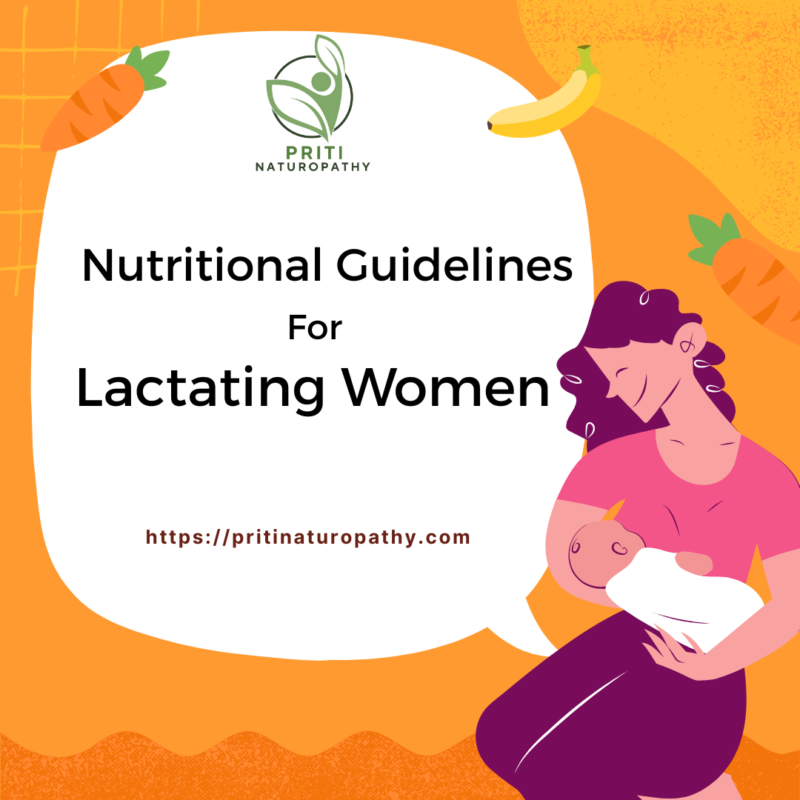Introduction
The mother’s nutrition is a key to successful breastfeeding and therefore the baby’s health. One should pay attention to the fact that the nutrient need increases during lactation and, therefore, the woman needs to eat more food, in fact, even more than during pregnancy.
The kind of foods eaten during lactation would be similar to that consumed during pregnancy, but with additional energy and protein intake to maintain lactation. Some general considerations we should keep in mind:
Which nutrients are of particular importance?
In general, the requirement for almost all nutrients increases during lactation. But the diet should provide more of the following:
- Energy-giving nutrients (carbohydrates and fats)
- Proteins
- Calcium
- Vitamin A and
- Vitamin C
The requirement for energy and protein during the first six months of lactation is comparatively much more than the next six months.
Which foods to select?
In general, to provide an adequate well balanced meal during lactation, include atleast one food item from each of the three food groups – energy-giving, body-building and regulatory/protective.
But you are aware that the requirement for energy, proteins, calcium, vitamin A and vitamin C (among the protective nutrients) is particularly high during lactation. Hence provide more of the following foods.
- A mixture of cereals (i.e. wheat, rice, bajra, millets, jowar, ragi or any other staple commonly used)
- Pulses and meat/fish/egg, if acceptable
- Milk and milk products (like curd, cottage cheese, khoa etc.)
- Green leafy vegetables (like amaranth leaves, mustard, fenugreek leaves, colocasia leaves etc.)
- Other vegetables (especially yellow- or orange-colored vegetables like carrots, pumpkin etc.)
- Seasonal fruits (specially citrus fruits like oranges, lemons, limes, and others like guava, pineapple, mango, papaya etc.) And
- Nuts/oilseeds (groundnuts, gingelly seeds, coconut etc.)
(A lactating woman should consume at least a minimum of 500 ml milk/day or preferably more.)
What should be the meal pattern?
To help meet the increased nutrient requirements, the lactating woman needs to increase the amount of food normally eaten in a day. she should continue to eat the same balanced diet that was eaten during pregnancy, the number of meals consumed in a day should be increased during lactation.
A 5-6 meal pattern could be followed such as breakfast, mid-morning meal, lunch, mid-afternoon meal, tea and dinner.
What is the other specific consideration?
Along with the increased food intake, the fluid intake should also increase during lactation. Increased fluid intake is recommended so as to help in maintaining an adequate supply of breast milk.
- Liquids in the form of juices, tea, milk, milk-based beverages, lime juice, coconut water etc. should be provided in-between meals or whenever desired. Plenty of water (at least 4-6 glasses daily) should also be provided. All these liquids i.e. water, drinks, beverages add to the fluid intake necessary to produce milk.
- It is observed that during lactation no specific food needs to be omitted from the diet. A lactating mother can eat whatever nutritious food she chooses. But if she suspects a particular food of causing some discomfort to the infant, she can eliminate that food from her diet. Food with strong or specific flavors may alter the taste of breast milk. Use of such foods may, therefore, be restricted.
- Some substances like alcohol, drugs etc. can enter the breast milk
Points to remember
DO’S
- Include generous serving of milk, citrus fruits, green leafy vegetables and whole grains in the diet.
- Provide plenty of water and fluids (about 3 liters) to maintain adequate supply of breast milk.
- Continue iron supplementation for a few months after childbirth.
- Increase the meal frequency to 5-6 meals a day.
- Increase the quantity of food eaten at one time.
- Provide nutritious food preparations/snacks in-between meals.
- Provide sufficient rest to the mother.
- Encourage frequent sucking to produce enough milk for the baby’s need.
- Ensure that the women are not emotionally disturbed during lactation.
DON’TS
- Discourage the lactating woman from smoking or consuming alcoholic beverages.
- Do not give drugs except when prescribed by the doctor.
- Restrict the use of foods with strong flavor.
- Avoid serving highly seasoned or spicy foods.
- Discourage the lactating woman from breast feeding if she is suffering from chronic illness such as cardiac disease, tuberculosis, severe anemia, kidney disorder or mental disorder.


Leave a Reply